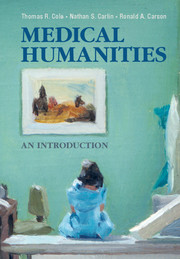Book contents
15 - Health and Disease
from Part III - Philosophy and Medicine
Summary
The conservation of health . . . is without doubt the primary good and the foundation of all other good of this life.
– René DescartesHealth is the absence of disease.
– Christopher BoorseHealth is a state of complete physical, mental, and social well-being, and not merely the absence of disease or ini rmity .
– World Health OrganizationAbstract
This chapter explores concepts of health and disease at the crossroads of philosophy, history, and social science. Beginning with a discussion of how these concepts have important consequences in our everyday lives, it examines various holistic conceptions of health and healing; the tension between biomedical and normative conceptions of health and disease; and the special challenge posed by mental illness. Then, with a focus on the rise of narrative medicine and the recent distinction between “disease” and “illness,” it considers how we might think about health and disease in the twenty-first century.
INTRODUCTION
We all want to be healthy. Yet rarely, if ever, do we stop to ask why we want to be healthy or what we mean by health. As the French surgeon René Leriche (1879–1955) put it in 1936, “Health is life lived in the silence of the organs.” It is something we take for granted – until we lose it. Once the organs break their blissful silence, we want to know why we are feverish, exhausted, or in pain. That is, we are preoccupied with disease. Perhaps that is why medical thought and practice focus more on disease than on health. But, whatever the reasons, health is more desired than understood. And disease is discussed more than health.
- Type
- Chapter
- Information
- Medical Humanities , pp. 237 - 250Publisher: Cambridge University PressPrint publication year: 2014



